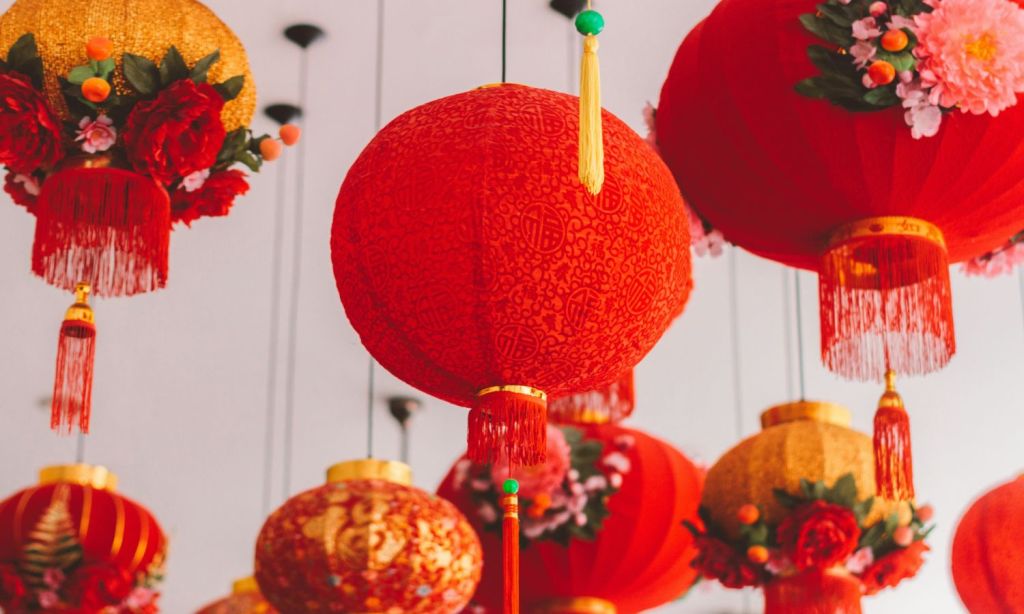Nearly six weeks after the western world’s ticking to a new calendar year is the start of Chinese New Year. The multi-day festival marks the first new moon of the year, the end of winter, and the start of spring. So, when is Chinese New Year 2024?
First, a bit of background: One of the most important holidays in Chinese culture, Chinese New Year is celebrated with several customs, including families gathering for reunions and, in the lead-up to it, thoroughly cleaning their homes to make way for incoming good luck and decorating their windows and doors with red lanterns, couplets and flowerpots.
Each Chinese New Year is assigned one of 12 animals: rat, ox, tiger, rabbit, dragon, snake, horse, goat, monkey, rooster, dog and pig. In Chinese culture, some look at zodiac signs – the animal of the year you were born — for compatibility before getting married.
Chinese New Year isn’t only celebrated in China but also in countries with large Chinese populations, including Singapore, South Korea, Vietnam, Thailand, Malaysia, Indonesia and Cambodia.

When Is Chinese New Year 2024?
The first new moon of the year falls on a different day every year but is always late January or early February. In 2024, Chinese New Year falls on Saturday, February 10, until Saturday, February 24.
The next year will be that of the dragon, the fifth character in the Chinese zodiac, a symbol of good luck, honour and success in Chinese culture.
At midnight on Chinese New Year’s Eve, so on Friday, February 9, fireworks usually bring in the new year. In the days that follow, friends visit each other’s homes, wishing each other good luck with the year ahead. Many Chinese also believe it’s unlucky during this time to hang your clothes out to try, buy new books or shoes or cut your hair.
How Long Does Chinese New Year Last?
Chinese New Year lasts for 15 days, finishing with a Lantern Festival. This year, the Lantern Festival will be held on Saturday, February 24. In China, Chinese New Year’s Eve, New Year’s Day, and the day after are public holidays and used as days to rest.
Many Australian cities hold street parades, pop-up flower markets and art shows with installations. You may also be treated to tea celebrations, craft workshops and dragon boat races.
What Exactly Is Chinese New Year?
Chinese New Year, also known as Spring Festival, is centred around removing the old and bad and welcoming the new and good. It’s been celebrated for thousands of years all across China and, more recently, in countries with large Chinese populations.
Families will burn incense to worship their ancestors, and older members of the family will gift young kids with good luck pocket money tucked into a red envelope.
Food and drink are a crucial part of the New Year celebrations, with families gathering for a New Year’s Eve dinner the evening before the start of Chinese New Year. Oranges, kumquats, tangerines and pomelos are common Chinese New Year food gifts because they’re thought to bring good luck and happiness.
Decorations are also a big part of Chinese New Year celebrations, and people spend substantial time and effort with them in their homes in a bid to welcome the Gods of Wealth.
Are Lunar and Chinese New Year the Same?
Lunar New Year and Chinese New Year aren’t synonymous with each other. Chinese New Year is more specific, while Lunar New Year is more general and encompasses all celebrations from many Asian countries, including China, Vietnam, South Korea and Singapore, that mark a new year. Lunar New Year is also used more commonly in countries outside China.
Related: Set the Scene for Chinese New Year With These 10 Colourful Decorations
Read more stories from The Latch and subscribe to our email newsletter.






